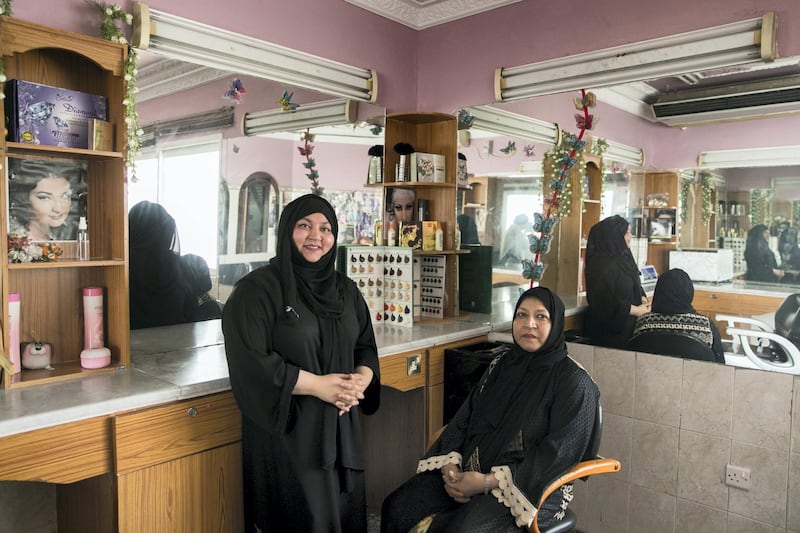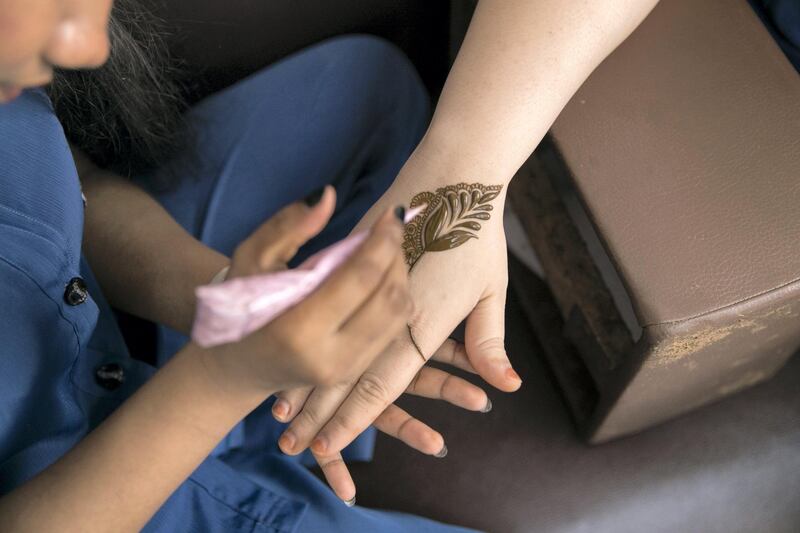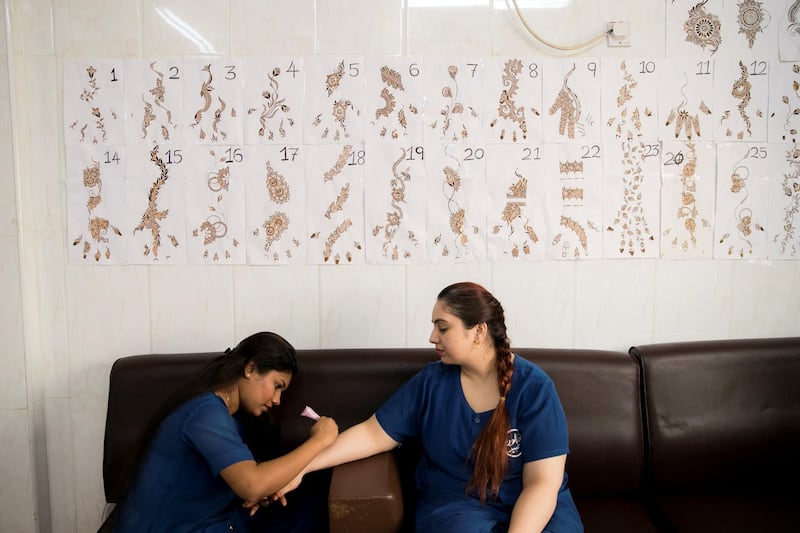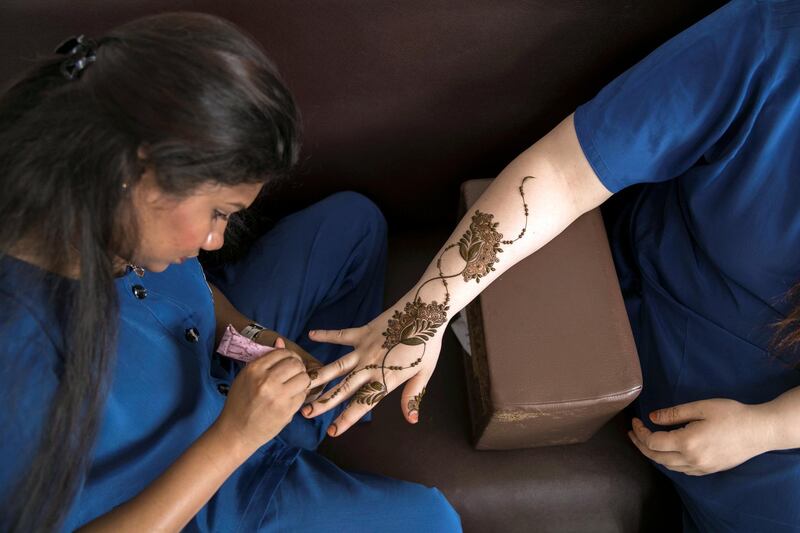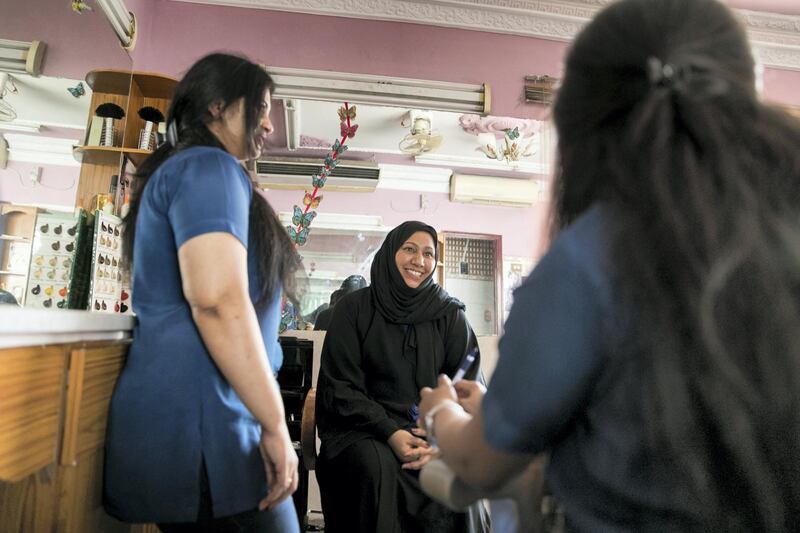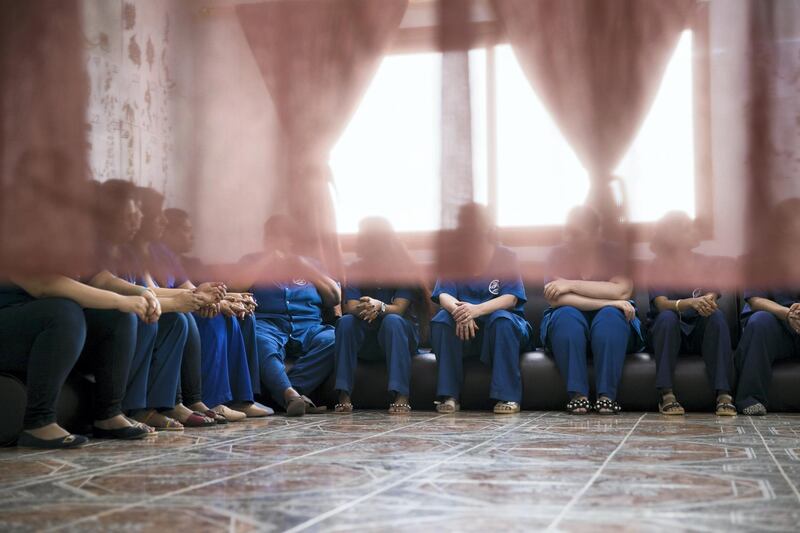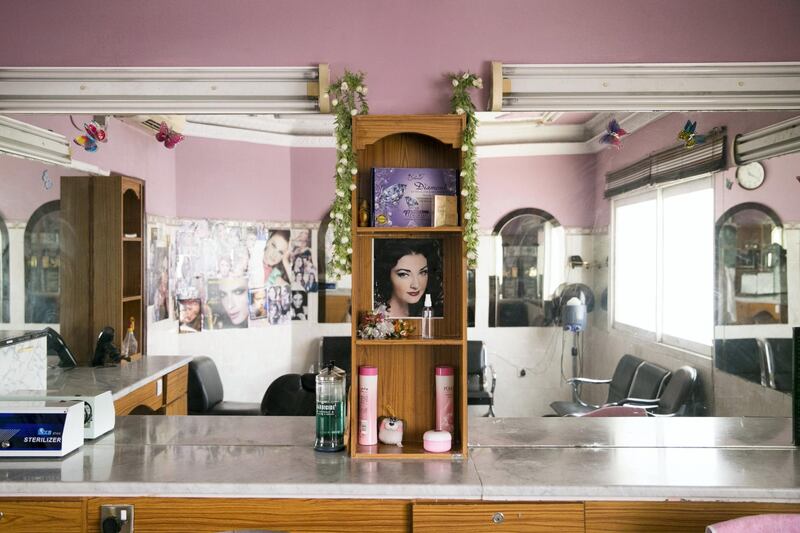It is the Eid tradition undertaken by thousands of women across the country.
And for Nafisa Enayatullah who has witnessed the Eid rush for 32 years, it is her favourite time of year.
In the coming days, salons like hers across the country will be filled with women seeking delicate henna tattoos.
Ms Enayatullah is one of the many women who came to the UAE at a young age to work at a salon. She now owns her own salon in Abu Dhabi and employs henna artists who support families abroad.
She came to the Emirates in 1986 on the advice of a childhood friend in Mumbai, where she was working odd jobs at wedding parties.
“At that time I was dependent on my family and I wanted to become independent,” said Ms Enayatullah, as translated by her daughter, Fatima Moinul Haque. “I wanted to experience life outside my father’s comfort. Why not be independent if you can?”
She knew of Dubai’s close ties with her native Mumbai but her work was in Shahama, a town 40 minutes east of Abu Dhabi city.
“It was all desert and very empty,” she recalls. “Whenever people would come [to India] from Dubai they’d tell me it’s big and has buildings but I came to Shahama, it was empty and I was confused because there was nothing here.”
Ms Enayatullah did not speak a word of Arabic but became conversational within three months thanks to a Lebanese beautician who worked, cooked and lived with her.
At the salon, word of her talent attracted customers from as far as Baniyas, another town 30km south of Abu Dhabi. She began to save Dh1,000 from her monthly salary of Dh1,500.
In 1991, Ms Enayatullah open Al Abeer Henna and Beauty Saloon in Baniyas, its first henna parlour.
She had married earlier that year. “It was a decision by my husband, Moinul Haque, and I to start our own business. We both invested in the salon together. He helped me all the way.”
Today, she employs 16 women from Pakistan, Sri Lanka, Morocco, the Philippines and India.
The network of beauticians in the Arabian Gulf is expansive and all were recruited by word of mouth, regardless of experience.
________________
Read more:
Henna artists tell of sleepless nights and caffeine fixes ahead of Eid
Last-minute rush across UAE is on ahead of Eid holidays
________________
Tabassum Rabiye joined 10 years ago to support her mother and five siblings. She has a grade five education.
“When I came here, I learnt,” said Ms Rabiye, who is 49. “Someone over there [in Mumbai] told me about a saloon in the Emirates that was good. I had no father and I had brothers and my mother was sick so I came here. I had to be here. Everything was new but now, al hamdullilah, I am happy with my life.”
Staff have a built-in network of friends upon their arrival.
“It did not take a long time to adjust because all the girls are talking same language and eating the same food,” said Shamin Zubaid Bee, a henna artist who supports her mother and four siblings in Mumbai. “When we came here, our lives here were greatly changed. I am supporting my family because I don’t have a father.”
When Ms Enayatullah arrived in 1986, it was a lonelier existence.
“I used to be very scared and I used to cry sometimes because I didn’t know how to speak in Arabic even. It was difficult in the beginning.”
She quickly mastered the dense, flowery Gulf style of henna popular in the mid-1980s and slowly began to incorporate delicate, detailed Indian patterns into her designs.
From the first day, her Mumbai style proved popular. Her first customer was a bride. Ms Enayatullah suggested that rather than adorn the bride’s arm to the elbow, as was traditional, she could decorate from the fingertips to her shoulders. The family were so delighted with the new look that they invited Ms Enayatullah to the wedding.
Subtle introductions like these from Iranian, Indian and Pakistani beauticians became adopted into modern Emirati tradition and this style became standard for Emirati brides.
For Ms Enayatullah, trust is what matters above all else. Customers have become friends, and confide in her.
“Even if I don’t have anything to tell them, listening helps a lot and you have to encourage them. Of course we can’t solve all problems but listening helps.”
The rush before Eid is a time when she can look back on her success.
“Before I didn’t have anything myself and in this long journey, I have made myself a name. Everyone knows me. God has given the strength and made me something. I feel content that all my hard work has paid off.”
